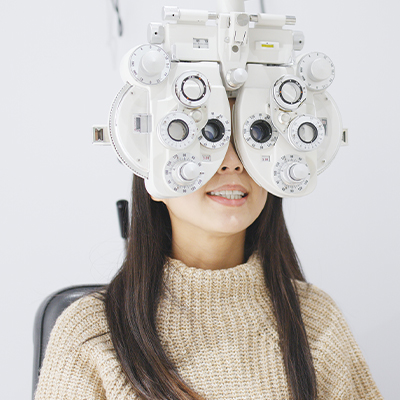
Our vision is an essential part of our everyday lives. It aids in our ability to perceive the world around us, perform tasks, and even communicate with others. Despite its importance, many of us take our vision for granted, neglecting to take the necessary steps to ensure its health. This introduces us to the world of vision screening and comprehensive eye exams. Both are crucial in maintaining our vision health but serve different purposes. Understanding what each involves and how they differ can help you make informed decisions about your vision health.
Defining Vision Screening
Vision screening is the simpler of the two types of eye checks. It is a brief exam that looks for potential vision problems and eye disorders. Vision screenings are often done by pediatricians, school nurses, or volunteers at a local health fair. The primary goal of a vision screening is to identify individuals who may be at risk of having undetected vision problems.
During a vision screening, you'll typically be asked to read a series of letters or numbers off an eye chart. This test primarily checks for one thing: how well you can see at a distance. This is also known as your visual acuity. While this is certainly an important aspect of vision health, it is only one piece of the puzzle.
Understanding Comprehensive Eye Exams
A comprehensive eye exam is a thorough evaluation of your eyes and your vision. It is performed by an optometrist. This exam is designed to not only determine your prescription for eyeglasses or contact lenses but also to check for common eye diseases, assess how your eyes work together as a team, and evaluate your eyes as an indicator of your overall health. It's not just about clear vision - it's about having a detailed understanding of your eye health.
A comprehensive eye exam can include a variety of tests such as a visual field test (to measure your peripheral vision), a cover test (to see how well your eyes work together), and even a dilated eye exam (where special drops are used to dilate your pupils, allowing the eye care professional to examine the inside of your eyes).
The Difference Between Vision Screening and Comprehensive Eye Exams
The primary difference between a vision screening and a comprehensive eye exam is the depth of evaluation. While a vision screening is a quick, simple check to identify potential vision problems or eye disorders, a comprehensive eye exam is a thorough evaluation of your overall eye health.
Vision screenings can be valuable for identifying individuals who may need a more detailed examination. However, they are not designed to be a substitute for a comprehensive eye exam. Vision screenings can miss significant vision problems and eye diseases that a comprehensive eye exam could catch.
In contrast, a comprehensive eye exam involves various tests to assess everything from your visual acuity and prescription needs to your risk of eye disease. They are an essential part of preventive health care.
Why Comprehensive Eye Exams are Important
Comprehensive eye exams are vital for many reasons. They are the only way to catch certain eye diseases early on, often before they've caused noticeable vision loss. These diseases include glaucoma, diabetic retinopathy, and age-related macular degeneration, to name just a few.
Additionally, comprehensive eye exams can also detect other health problems that aren't necessarily related to the eyes. For example, signs of conditions such as diabetes, high blood pressure, and even cancer can sometimes be observed in the eyes before they cause symptoms elsewhere in the body.
How Often Should You Get a Comprehensive Eye Exam?
It's generally recommended that they have a comprehensive eye exam every one to two years, depending on their risk factors. Those at higher risk for eye diseases may need more frequent exams. These risk factors can include age, family history of eye disease, certain medical conditions, and having had eye surgery or eye injuries in the past.
Prioritizing Your Eye Health
Both vision screenings and comprehensive eye exams play important roles in maintaining good eye health. Vision screenings are a valuable tool for identifying individuals who may need a more detailed examination. However, they are no substitute for a comprehensive eye exam, which provides a thorough evaluation of eye health and can catch serious eye diseases and other health problems early on.
Prioritize your eye health by scheduling a comprehensive eye exams with True Vision Optometry in our Montebello, California office. We provide quality eye care services and products for the entire family. Please call (323) 403-4116 to book an appointment today.









